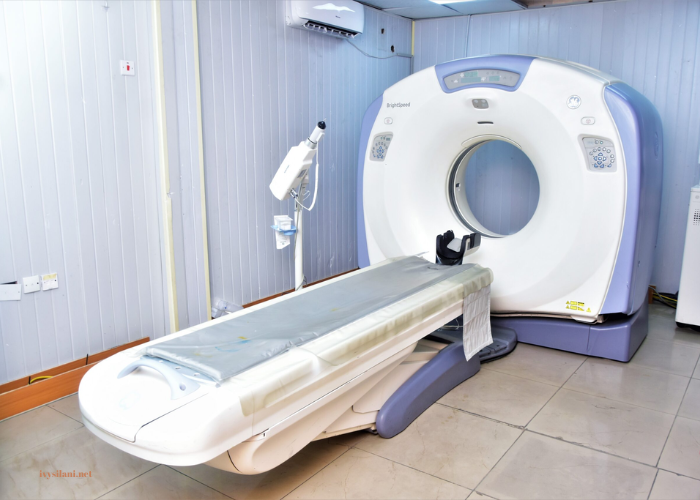Health
Holistic Approaches to Enhancing Mental and Physical Wellness

In the fast-paced, high-pressure world of the 21st century, maintaining mental and physical wellness has become more important than ever. Many people experience stress, anxiety, burnout, and physical health issues due to demanding lifestyles. To combat these challenges, there has been a growing interest in holistic approaches that promote overall well-being. Unlike traditional methods that often treat symptoms in isolation, holistic wellness focuses on the interconnectedness of the mind, body, and spirit. This comprehensive approach to health recognizes that all aspects of a person’s life contribute to their wellness and should be addressed collectively for optimal results.
Understanding Holistic Wellness
Holistic wellness is a broad concept that emphasizes the importance of treating the whole person—body, mind, emotions, and spirit—rather than focusing solely on disease symptoms or specific conditions. The term “holistic” originates from the Greek word “holos,” meaning “whole.” Holistic wellness practitioners believe that health is achieved by balancing all aspects of a person’s life, and that imbalance in one area can negatively impact the others.
The holistic approach is not only preventative but also restorative. It aims to enhance an individual’s natural healing abilities and promote long-term well-being. By addressing the root causes of health problems and enhancing self-awareness, holistic wellness seeks to empower individuals to make positive lifestyle changes that support overall health.
Key Principles of Holistic Wellness
Holistic wellness is based on several core principles that guide its practice:
- Interconnectedness: The mind, body, and spirit are interrelated and influence each other. Achieving balance in one area positively impacts the others, while imbalance in one area can lead to issues in another.
- Prevention over Cure: Holistic wellness emphasizes the prevention of health issues by maintaining a balanced and healthy lifestyle rather than solely relying on treatment after illness has occurred.
- Self-Healing: The body has an innate ability to heal itself, given the right conditions. Holistic practices aim to support and enhance this natural healing process.
- Personal Responsibility: Individuals are encouraged to take an active role in their own health and wellness by making informed choices and adopting healthy habits.
- Holistic Treatment: Treatment involves addressing all dimensions of health—mental, physical, emotional, and spiritual—through integrative therapies that promote balance and harmony.
Mental and Physical Wellness: A Holistic Perspective
In the realm of holistic wellness, mental and physical health are deeply connected. Mental health issues such as stress, anxiety, and depression can manifest in physical symptoms like headaches, fatigue, or digestive problems. Conversely, chronic physical health conditions can lead to emotional distress, impacting mental well-being. A holistic approach acknowledges this connection and seeks to treat the underlying causes of health problems in both areas.
Holistic Approaches to Mental Wellness
- Mindfulness and Meditation
Mindfulness and meditation are central to many holistic mental wellness practices. These techniques involve focusing attention on the present moment and cultivating awareness of thoughts, emotions, and bodily sensations. Numerous studies have shown that mindfulness can reduce stress, anxiety, and depression by helping individuals develop healthier relationships with their thoughts and emotions.
Meditation, in particular, can help calm the mind, reduce emotional reactivity, and promote relaxation. It encourages self-awareness and acceptance, which can lead to better emotional regulation and stress management. By integrating mindfulness into daily life, individuals can enhance their mental clarity and resilience.
- Breathwork and Deep Breathing Exercises
Breathwork is a practice that involves conscious control of breathing patterns to improve mental and physical health. Deep breathing exercises, such as diaphragmatic breathing, can activate the parasympathetic nervous system, which is responsible for calming the body and reducing stress responses. These practices promote relaxation, reduce anxiety, and improve emotional balance.
By focusing on the breath, individuals can gain greater control over their physiological responses to stress. This leads to improved focus, enhanced mental clarity, and a greater sense of inner peace.
- Holistic Therapies
Holistic therapies such as acupuncture, aromatherapy, and Reiki are increasingly being used to enhance mental wellness. Acupuncture, an ancient Chinese practice, involves inserting fine needles into specific points on the body to stimulate energy flow and restore balance. Research has shown that acupuncture can be effective in reducing symptoms of anxiety and depression.
Aromatherapy, which uses essential oils derived from plants, has been shown to reduce stress and improve mood. Oils like lavender, chamomile, and bergamot are commonly used for their calming properties. Reiki, a form of energy healing, aims to balance the body’s energy fields to promote emotional and physical well-being.
- Nutrition and Mental Health
The relationship between nutrition and mental health is a key component of holistic wellness. A diet rich in whole foods, healthy fats, and essential nutrients can support brain function and mental well-being. Omega-3 fatty acids, for example, have been linked to reduced symptoms of depression and anxiety, while deficiencies in vitamins like B12 and D have been associated with mood disorders.
Holistic practitioners often recommend personalized dietary plans that address nutrient deficiencies and support brain health. Eating a balanced, nutrient-dense diet can improve mood stability, cognitive function, and emotional resilience.
Holistic Approaches to Physical Wellness
- Exercise and Movement
Physical activity is a cornerstone of holistic physical wellness. Regular exercise not only improves physical health but also has profound effects on mental well-being. Exercise releases endorphins, the body’s natural mood enhancers, which can reduce stress, improve mood, and boost energy levels.
Holistic approaches to exercise often emphasize activities that integrate body, mind, and spirit. Yoga, Tai Chi, and Qigong are examples of movement practices that promote physical strength, flexibility, and balance while also enhancing mental focus, relaxation, and inner calm.
- Nutrition and Whole Foods
A holistic approach to physical wellness places a strong emphasis on nutrition. Rather than focusing on fad diets or calorie counting, holistic nutrition advocates for a diet rich in whole, unprocessed foods that nourish the body. Fresh fruits, vegetables, whole grains, lean proteins, and healthy fats provide the essential nutrients needed for optimal physical health.
In addition to supporting physical vitality, a nutrient-dense diet can improve digestion, boost energy levels, and enhance immune function. Holistic practitioners often encourage mindful eating—paying attention to hunger cues, savoring meals, and eating in a relaxed state—to improve digestion and foster a positive relationship with food.
- Sleep and Rest
Quality sleep is essential for both mental and physical wellness. Inadequate sleep can lead to a host of health problems, including fatigue, impaired cognitive function, and a weakened immune system. Holistic approaches to sleep emphasize creating a restful environment and establishing healthy sleep habits.
Practices such as reducing screen time before bed, maintaining a regular sleep schedule, and creating a calming bedtime routine can improve sleep quality. Additionally, holistic therapies such as herbal remedies, aromatherapy, and relaxation techniques may be used to promote restful sleep and support the body’s natural healing processes.
- Stress Management and Relaxation
Chronic stress is a leading cause of many physical health problems, including heart disease, high blood pressure, and digestive issues. Holistic wellness emphasizes stress management techniques that promote relaxation and balance.
In addition to mindfulness and meditation, practices such as yoga, deep breathing, and progressive muscle relaxation can help reduce stress and promote relaxation. These techniques activate the body’s relaxation response, counteracting the harmful effects of chronic stress.
Conclusion
Holistic approaches to enhancing mental and physical wellness recognize that true health is achieved by addressing the whole person—mind, body, and spirit. By adopting a holistic mindset and integrating practices that promote balance and harmony, individuals can cultivate greater well-being and resilience in all areas of their lives. From mindfulness and meditation to nutrition and movement, holistic wellness offers a comprehensive, preventative, and empowering path to long-term health.
Blogs
Medical Research Advancing Healthcare Solutions

In recent decades, the field of healthcare has undergone tremendous transformation, driven by groundbreaking advancements in medical research. Today, cutting-edge medical research is the engine behind the development of new treatments, technologies, and strategies that are significantly improving the quality of life for millions worldwide. These innovations are shaping the future of medicine, offering solutions that were once thought impossible. In this article, we will delve into how medical research is transforming healthcare, the emerging trends driving this evolution, and the challenges that still need to be addressed.
The Role of Medical Research in Healthcare Innovation
Medical research plays a crucial role in understanding diseases, improving diagnostics, and developing treatments. It involves a rigorous process of scientific inquiry aimed at uncovering the root causes of illnesses and finding the best ways to prevent, diagnose, and treat them. Over the years, advancements in research have led to the discovery of life-saving therapies, vaccines, and diagnostic tools, fundamentally altering the landscape of modern medicine.
Medical research encompasses various disciplines, including molecular biology, genetics, pharmacology, and clinical studies, each contributing to a deeper understanding of the human body and disease mechanisms. This knowledge, in turn, leads to the creation of more effective and personalized medical interventions.
Precision Medicine: A New Era of Personalized Healthcare
One of the most promising areas of cutting-edge medical research is the rise of precision medicine. This approach tailors treatment to the individual patient based on their unique genetic makeup, lifestyle, and environmental factors. Precision medicine aims to move away from the traditional “one-size-fits-all” approach, recognizing that each patient is different and may respond differently to the same treatment.
In recent years, advancements in genomic research have made it possible to analyze a patient’s DNA to predict their susceptibility to certain diseases, such as cancer, cardiovascular conditions, and autoimmune disorders. This genetic information enables doctors to design customized treatment plans that target the specific biological pathways involved in the patient’s illness, thereby increasing the chances of successful outcomes.
For example, in oncology, precision medicine has revolutionized cancer treatment. The identification of specific genetic mutations that drive the growth of certain types of cancer has led to the development of targeted therapies. These drugs attack the cancer cells without harming healthy tissue, reducing side effects and improving the effectiveness of treatment.
Immunotherapy: Harnessing the Body’s Immune System
Another significant breakthrough in cutting-edge medical research is the development of immunotherapy. Immunotherapy leverages the body’s natural immune system to fight diseases, particularly cancer. Unlike traditional therapies such as chemotherapy and radiation, which directly target cancer cells, immunotherapy works by stimulating or enhancing the immune system’s ability to detect and destroy cancer cells.
Several types of immunotherapy have shown remarkable success in treating certain cancers that were previously considered difficult to manage. For instance, immune checkpoint inhibitors, which block proteins that prevent immune cells from attacking cancer, have shown significant efficacy in treating melanoma, lung cancer, and other cancers. Additionally, CAR-T cell therapy, a treatment that involves genetically modifying a patient’s T-cells to attack cancer cells, has achieved promising results in blood cancers like leukemia and lymphoma.
The success of immunotherapy highlights the importance of continued research in understanding the complex interactions between the immune system and cancer cells. As our knowledge in this area grows, it is expected that immunotherapy will become a standard treatment option for a broader range of cancers and other diseases.
Regenerative Medicine: The Future of Tissue and Organ Repair
Regenerative medicine represents another frontier of cutting-edge medical research. This field focuses on the development of therapies that can repair or replace damaged tissues and organs, offering hope for patients with conditions that currently have no cure. Regenerative medicine involves the use of stem cells, gene editing, and tissue engineering to regenerate damaged cells, tissues, and organs.
Stem cell research, in particular, has garnered significant attention for its potential to treat a wide range of diseases, including Parkinson’s disease, diabetes, and spinal cord injuries. Stem cells have the unique ability to develop into various types of cells, making them a valuable tool for repairing damaged tissues. Researchers are exploring ways to use stem cells to regenerate heart tissue after a heart attack, restore insulin-producing cells in patients with diabetes, and repair nerve cells in individuals with neurodegenerative diseases.
In addition to stem cells, advances in gene editing technologies like CRISPR have opened up new possibilities for correcting genetic mutations that cause diseases. By precisely modifying DNA, scientists can potentially cure inherited disorders like cystic fibrosis, sickle cell anemia, and muscular dystrophy.
Artificial Intelligence and Data Analytics in Medical Research
The integration of artificial intelligence (AI) and data analytics in medical research is revolutionizing how researchers collect, analyze, and interpret vast amounts of data. AI has the ability to process complex datasets at a speed and scale that far surpasses human capabilities, allowing researchers to uncover patterns and insights that were previously hidden.
In drug discovery, AI is being used to identify potential drug candidates by analyzing the molecular structure of compounds and predicting how they will interact with specific targets in the body. This approach has the potential to significantly accelerate the drug development process, reducing the time and cost required to bring new therapies to market.
Moreover, AI-powered diagnostic tools are enhancing the accuracy of disease detection. Machine learning algorithms can analyze medical images, such as X-rays and MRIs, to identify abnormalities with high precision. These tools are particularly valuable in detecting conditions like cancer and cardiovascular disease at an early stage, when treatment is most effective.
Data analytics also plays a critical role in precision medicine, as it enables researchers to analyze large datasets of patient information, including genetic, clinical, and lifestyle data. By integrating and analyzing these diverse data sources, researchers can identify patterns that lead to more personalized and effective treatment strategies.
Overcoming Challenges in Medical Research
While the advancements in medical research are promising, there are several challenges that must be addressed to fully realize their potential. One of the primary challenges is the high cost of research and development. Developing new therapies, particularly in fields like precision medicine and gene therapy, requires significant financial investment. This cost is often passed on to patients in the form of expensive treatments, making access to cutting-edge therapies a barrier for many.
Another challenge is the need for more comprehensive clinical trials. While preclinical studies and early-phase trials may show promising results, large-scale clinical trials are essential to determine the safety and efficacy of new treatments. However, recruiting enough participants for these trials, especially in rare diseases, can be difficult. Additionally, there is a need for more diverse populations in clinical trials to ensure that treatments are effective across different demographic groups.
Ethical considerations also play a role in medical research, particularly in areas like genetic editing and stem cell research. Ensuring that new therapies are developed and used in a way that is safe, ethical, and equitable is a critical concern for researchers, policymakers, and the public.
Conclusion
Cutting-edge medical research is transforming the healthcare landscape, offering new hope for patients with conditions that were once considered untreatable. From precision medicine and immunotherapy to regenerative medicine and AI-driven diagnostics, these advancements are paving the way for a future where healthcare is more personalized, effective, and accessible. However, to fully realize the potential of these innovations, continued investment in research, collaboration across disciplines, and ethical considerations will be essential. As we move forward, cutting-edge medical research will continue to be a driving force in advancing healthcare solutions and improving the lives of people around the world.
-

 Entertainment9 months ago
Entertainment9 months agoiVysilani: A Comprehensive Guide to Your Favorite Streaming Platform
-

 Entertainment5 months ago
Entertainment5 months agoThe 1982 Movie Poltergeist Used Real Skeletons As – Tymoff
-

 Biography7 months ago
Biography7 months agoHeyimbee | Biography, Age, Wiki, Height, Net Worth, Relationship, Facts, Family, Education
-

 Entertainment8 months ago
Entertainment8 months agoMarvel Executive Producer Discusses the MCU’s Recent Struggles
-

 Biography8 months ago
Biography8 months agoJules Ari | Biography, Age, Wiki, Height, Net Worth, Relationship, Facts, Family, Education
-

 Biography6 months ago
Biography6 months agomissmiafit | Biography, Age, Wiki, Height, Net Worth, Relationship, Facts, Family, Education
-

 Biography8 months ago
Biography8 months agoJoeBen Bevirt | Biography, Age, Wiki, Height, Net Worth, Relationship, Facts, Family, Education
-

 Biography7 months ago
Biography7 months agoJellybeanbrains | Biography, Age, Wiki, Height, Net Worth, Relationship, Facts, Family, Education



